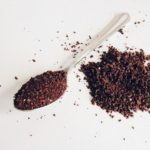Like so many other substances we love to eat and drink, over the years, there has been so much contradictory research about coffee that it’s sometimes difficult to know what to believe. Should we eat less butter or more butter? Just how evil is refined sugar? And is coffee good, or bad, for our heart health?
There’s certainly pretty convincing evidence that coffee can be beneficial for certain conditions: it’s even thought to help reduce the risk of Type 2 Diabetes and possibly even Parkinson’s, for instance. In one area, however, the evidence is still a little confusing – namely, is coffee good for your heart?
Why Coffee Is Good For The Heart
Well, while studies vary in their findings, some research suggests that drinking three cups of coffee a day can help with a condition known as atherosclerosis. In this condition, plaque builds up inside the arteries, so that blood is unable to flow naturally.
The study, carried out by researchers at Queen Mary University in London, and funded by the British Heart Foundation, a long-established charity, excluded those who reported drinking 25 cups of coffee or more and those who already had cardiovascular disease. Over 8,400 coffee-drinkers took part in the study, and the conclusions were that coffee did not have a detrimental effect on the health of arteries.
The study follows another research project from the University of Colorado, which has been tracking eating patterns and heart health of more than 15,000 people for around 60 years. Around the world, studies suggest that coffee can help heart health. In a Brazilian study, those who didn’t smoke but who drank three cups of coffee or more each day appeared to have a lower risk of clogged arteries.
Caffeine And Heart Rate: Does Caffeine Increase Heart Rate?
While we don’t want to get too technical about it all, there are a couple of medical terms we’d like to throw in at this point: tachycardia and tachyarrhythmia. Both terms mean a resting heart rate that’s higher than the usual rate, which is between 60 to 100 beats a minute for an adult. Of course, it isn’t quite that simple, as so many factors have an effect on our heart rates: age; whether you smoke or not; whether you have any existing heart conditions; and medications, to name just a few.
Palpitations is a word often used to describe a fast-beating, fluttering or pounding heart, and many people think coffee causes these sensations, although the truth is a little more complex.
Thing is, the effect that caffeine has on your heart rate depends on many factors too. In high doses, caffeine raises levels of epinephrine in your bloodstream – a substance many of us know better as adrenaline. One of the most startling physiological effects of caffeine on the body is that it can stimulate the sympathetic nervous system to produce adrenaline – what many of us know as the “fight or flight” response.
Effects Of Caffeine On Heart Rate
Okay, so how does caffeine affect our heart rate? Well, we know for sure that coffee stimulates the nervous system. And while the heart itself is not part of the nervous system, it’s controlled by the two parts of the nervous system – the sympathetic nervous system and the parasympathetic nervous system.
The sympathetic nervous system releases hormones which accelerate the heart rate. These hormones include the epinephrine we mentioned earlier and norepinephrine. The parasympathetic nervous system, however, releases hormones that slow down the heart rate – acetylcholine in particular.
7 Ways Coffee May Affect Your Heart
One – we know caffeine is a natural stimulant, especially in high doses. For those who have a pre-existing heart condition, this is a particular risk. In past years, there was some concern that drinking coffee could lead to a condition called atrial fibrillation, but unless you are drinking beverages with very high concentrations of caffeine, more recent research suggests this isn’t the case.
Two – A study of over 25,000 adults found that, up to a point when they drank coffee, the amount of coronary artery calcium detected in their systems decreased. As long as the daily intake wasn’t more than five cups of coffee, CAC was lowered.
Three – In people who aren’t accustomed to drinking coffee regularly, caffeine can increase systolic blood pressure by up to 10 points. Systolic blood pressure is the top number in your blood pressure reading, and this is the number that refers to the amount of pressure when your heart muscle contracts. The bottom number refers to your blood pressure when your heart is between beats.
Four – there are particular enzymes in the heart which can be stimulated by caffeine to produce more intense heart contractions.
Five – it’s thought that caffeine can affect natural hormones which then act on the heart, resulting in a release of norepinephrine. This has a similar effect to when adrenaline is released. If you need to be extra alert and on form, this can be especially beneficial.
Six – we’ve been talking about the physical heart, but how about our “emotional” heart? Ever heard that saying about “warming the cockles of your heart”? Well, we know for sure coffee has that effect, especially if the weather’s outside isn’t quite as warm as it should be.
Seven – Okay, to sum up, is caffeine a risk factor for heart disease? Well, not in moderation, and certainly not for those who don’t have a pre-existing heart condition. In fact, in those cases, caffeine can be beneficial.
Caffeine And Blood Pressure
We can’t really talk about the effects of caffeine on the heart without mentioning blood pressure – specifically high blood pressure, also known as hypertension. A certain amount of blood pressure is essential so that blood can be pumped around your body, and it naturally goes up and down during the day. It’s usually lower when you’re resting, and much lower when you’re sleeping, than if you’re out and about and active during the day.
If your blood pressure is consistently high, however, your heart has to work considerably harder to pump blood around your body, and if ignored, it can lead to serious conditions like a heart attack or stroke.

We never stop learning, and that goes for scientists too – they’re always investigating how caffeine affects us. And so far, the science suggests these are some of the ways that coffee may affect your heart. Many factors need to be taken into account, though: do you smoke; how regularly do you exercise; how frequently do you drink coffee already.
Sinatra Solution: Everything In Moderation
Yeah, we know. It’s like a mantra – “everything in moderation”. Thing is, it’s so often true – it’s fine to indulge in the good things in life, as long as you don’t overdo it. And nowhere is that truer than when it comes to eating and drinking.
And while we love all the research pouring out of the universities that confirms that coffee drinking isn’t a bad thing, for most of us anyway, we do need to remember that pretty much all of the studies that have been conducted have used coffee with an average amount of caffeine. In an average 8 fluid ounce cup of coffee, there’s around 95mg of caffeine.
Is Caffeine Bad For Your Heart Or Is Caffeine Good For Your Heart?
Once you start drinking larger servings, or more frequent servings, or you’re drinking coffee with higher caffeine content, however, the effects of caffeine on the body also increase. In the recent studies where coffee was shown to be beneficial for heart health and function, as soon as the subjects of the study drank more than five cups of coffee a day on average, the beneficial effects were no longer apparent.
So, yes, the research shows that caffeine is good for heart health – in moderation, and for those who don’t have a pre-existing heart condition. And of course, once you start adding cream, and sugar, and all those lovely syrups, you need to be aware that the effects of the sugar and fat might reduce the benefits of drinking the coffee.
Oh, and if you’re wondering about what the Sinatra solution is, you might like to see what Doctor Stephen T. Sinatra has to say on the topic of coffee and heart health. Essentially, a couple of cups of coffee a day aren’t going to do you any harm – for maximum benefits, drink it in the morning, to get your day off on the right foot.

Hi my name is Larry, a coffee aficionado from the US. I have already visited Colombia, Sumatra, Guatemala, Costa Rica, Ethiopia and Jamaica in my pursuit of finding the best-tasting coffee beans. I currently write from Bali and enjoy the relaxed life that you can only find in Canggu. Welcome to my coffee world!





